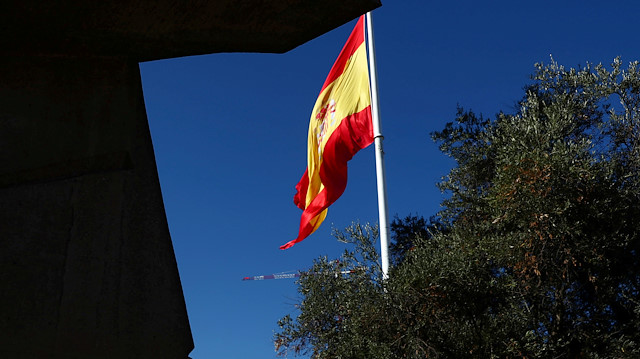
Another tense election campaign is wrapping up in the Spanish region of Catalonia on Friday, though political divisions and the separatist drive are expected to endure long after Sunday’s vote.
Spain’s Socialist Party and its Catalan chapter, the PSC, have been hoping to lead a change in the region that has been ruled by governments vowing to separate from Spain since 2012.
To draw on momentum, and perhaps a certain amount of voter fatigue around the issue of independence, the Socialists brought in one of their most high-profile leaders. Salvador Illa, who acted as Spanish health minister throughout the pandemic, stepped down from his post to run for Catalan premier.
Several polls have suggested that Illa could win the elections, though none have him anywhere near a majority in the highly fractured Catalan Parliament.
There was a possibility that Illa could cobble together a left-wing coalition that included separatist parties, some of which support Spain’s ruling coalition, but those hopes were all but destroyed this week.
On Wednesday, Catalonia’s four separatist parties – Together For Catalonia (led by exiled leader Carles Puigdemont), The Republican Left of Catalonia (whose President Oriol Junqueras was sentenced to 13 years in prison), The Popular Unity Candidacy (a radical far-left group) and The Catalan European Democratic Party (center-right) – all signed a pact agreeing that they would not support a Socialist Catalan government either by votes or abstentions.
Illa called the anti-Socialist pact “one more episode of the fighting and confrontation, the perpetuation of hate, division and the decadence of Catalonia.”
The opposition to the PSC was clear in Thursday’s televised debate. Illa was in the center of the crossfire, with other parties accusing him of being vaccinated out of turn – something he denies – and slamming him for his leadership of Spain during the pandemic.
The Catalan parties are widely expected to form another coalition after Sunday, though they have also been plagued by in-fighting and a series of legal problems derived from their separatist stances.
The region is currently run by Pere Aragones of the Republican Left. Yet, he considers himself an acting premier, as the former Catalan president Quim Torra was ousted after the Spanish Supreme Court barred him from holding public office over his refusal to remove partisan symbols from public buildings during Spain’s 2019 general elections.
The most striking political change this year is the rise of the far-right party Vox. The party is fiercely anti-separatist, as well as anti-immigrant.
Polls suggest that not only will Vox win its first seats in the Catalan Parliament, but may even overtake other right-wing unionist parties like the establishment Popular Party and even Citizens (Ciudadanos), which won the most seats in the last Catalan elections but was unable to form a government.














